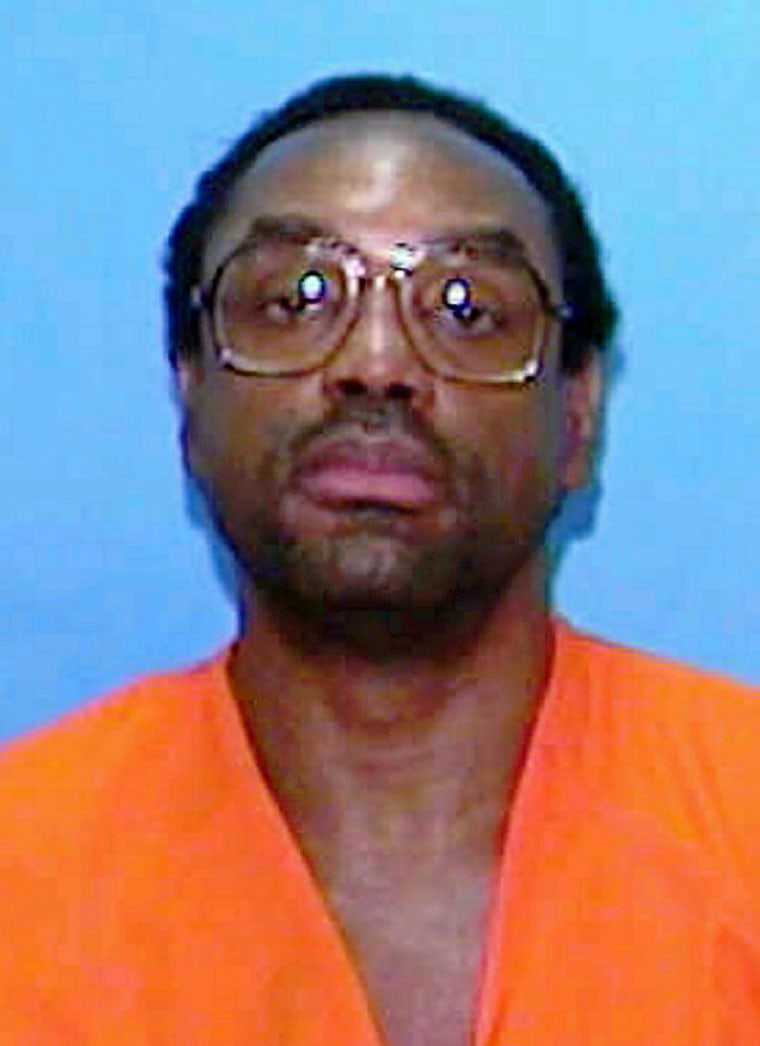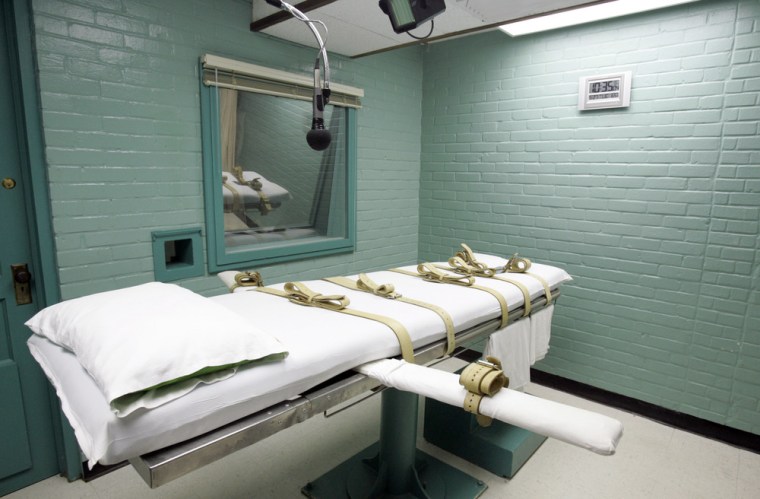
Askari Abdullah Muhammad was set to die Dec. 3 — his death warrant signed in October after the convicted killer spent more than 30 years on Florida’s death row.
But Muhammad wasn’t executed. The 62-year-old’s case became tangled in an appeal after the state exhausted its primary lethal-injection drug. His lawyers argued that the effects of a substitute drug — midazolam hydrochloride — risk a painful death.
On Thursday, Florida’s Supreme Court upheld the use of the new drug and also lifted the temporary stay of execution, meaning Muhammad could die as soon as Dec. 27.
Whatever Muhammad's particular fate, the delay in his case highlights the findings in a new report from the nonpartisan Death Penalty Information Center that says the use of capital punishment is on a steady decline nationwide and inmate executions have dropped 10 percent from a year ago.
A shortage of drugs used in lethal injections — along with shifting public opinion, burdensome court costs and other factors — are why fewer prisoners are being put to death, said the report, which was published the same day that Muhammad's stay was lifted.
The supply problems occurred when European countries that make related medical drugs stopped exporting to the U.S. — specifically because they don’t want their products being used to put humans to death, said Richard Dieter, executive director of the Washington, D.C.-based center.
But Dieter believes the shortage is only short-term.
"States are pretty creative. They’ve found new (drugs) and they’re turning to these compounding pharmacies to get them," he told NBC News.
States such as Texas, Ohio and Missouri have looked to the specialty pharmacies. But these new suppliers, which were only regulated by the U.S. Food and Drug Administration this fall, are raising even more questions.
“There’s this slowdown in executions because, of course, judges want to know about these pharmacies that are providing the drugs,” Dieter said. “Any time things change there's going to be a review.”
Florida previously used pentobarbital as the initial anesthetic in the killer cocktail administered to inmates. The state has only used midazolam twice before: in the executions of William Happ on Oct. 15 and Darius Kimbrough on Nov. 12.
In Happ’s case, there were reports that he was seen moving his head side to side even after the midazolam was injected.
Florida inmates and advocates have argued that it should be banned under the U.S. Constitution's protection against "cruel and unusual punishment."
Martin McClain, an attorney for Muhammad, told NBC News that even prisoners don't deserve the potential risk of “inhumane” treatment.
Muhammad, formerly known as Thomas Knight, was convicted in the 1974 abduction and murder of his boss and the man’s wife. Prosecutors say he kidnapped Miami couple Sydney and Lillian Gans at gunpoint and ordered them to take $50,000 from a bank. He later shot them in their necks.
Then in 1980, already on death row, Muhammad fatally stabbed a corrections officer with the sharpened end of a spoon.
Muhammad’s defense team said Thursday they were determining their options to further fight the use of midazolam, and Florida Gov. Rick Scott would have to schedule the execution.
Dieter, meanwhile, said Americans are becoming more skeptical about the death penalty.
“The fact that another state (Maryland) took the difficult step of abolishing the death penalty this year — making it six states in six years taking a step that no state had taken in 30 to 40 years — shows that,” Dieter added.
There were 39 executions this year, the lowest in five years. It’s a noticeable drop from the 98 executions seen in the peak year of 1999, according to the Death Penalty Information Center report.

In addition, 80 death sentences have been handed out this year — three more than last year but still far fewer than the peak of 315 in 1996.
Dieter said jurors are more attuned to the implications of the death penalty and are opting instead for life in prison without parole.
“You hear more about (exonerating) DNA evidence these days, and the fact that people convicted are now walking out of prison because of that,” Dieter said.
Diann Rust-Tierney, executive director of the National Coalition to Abolish the Death Penalty, said states are making careful reviews of their capital punishment laws because public support has steadily waned.
“It’s not a question of whether but when the death penalty will be abolished,” Rust-Tierney said of the perceived sea change.
But supporters of the death penalty argue it can still act as a deterrent and save lives.
John Malcolm, of the Heritage Foundation and a former federal prosecutor, points to Texas serial killer Kenneth Allen McDuff as someone who should have been stopped. He was paroled in 1989, after receiving three death sentences, then went on another grisly murder spree.
Malcolm added that life without parole can’t be the only alternative as long as the Supreme Court allows for the death penalty.
“Some people would say (life without parole) is not good enough because a life has been taken and the murderers do not deserve to live,” said Malcolm, director of the foundation’s Edwin Meese III Center for Legal and Judicial Studies.
Life without parole “is not a riskless choice," he added. "We have prison guards and other prisoners who get killed by lifers.”
Related:
White supremacist who killed blacks and Jews is put to death